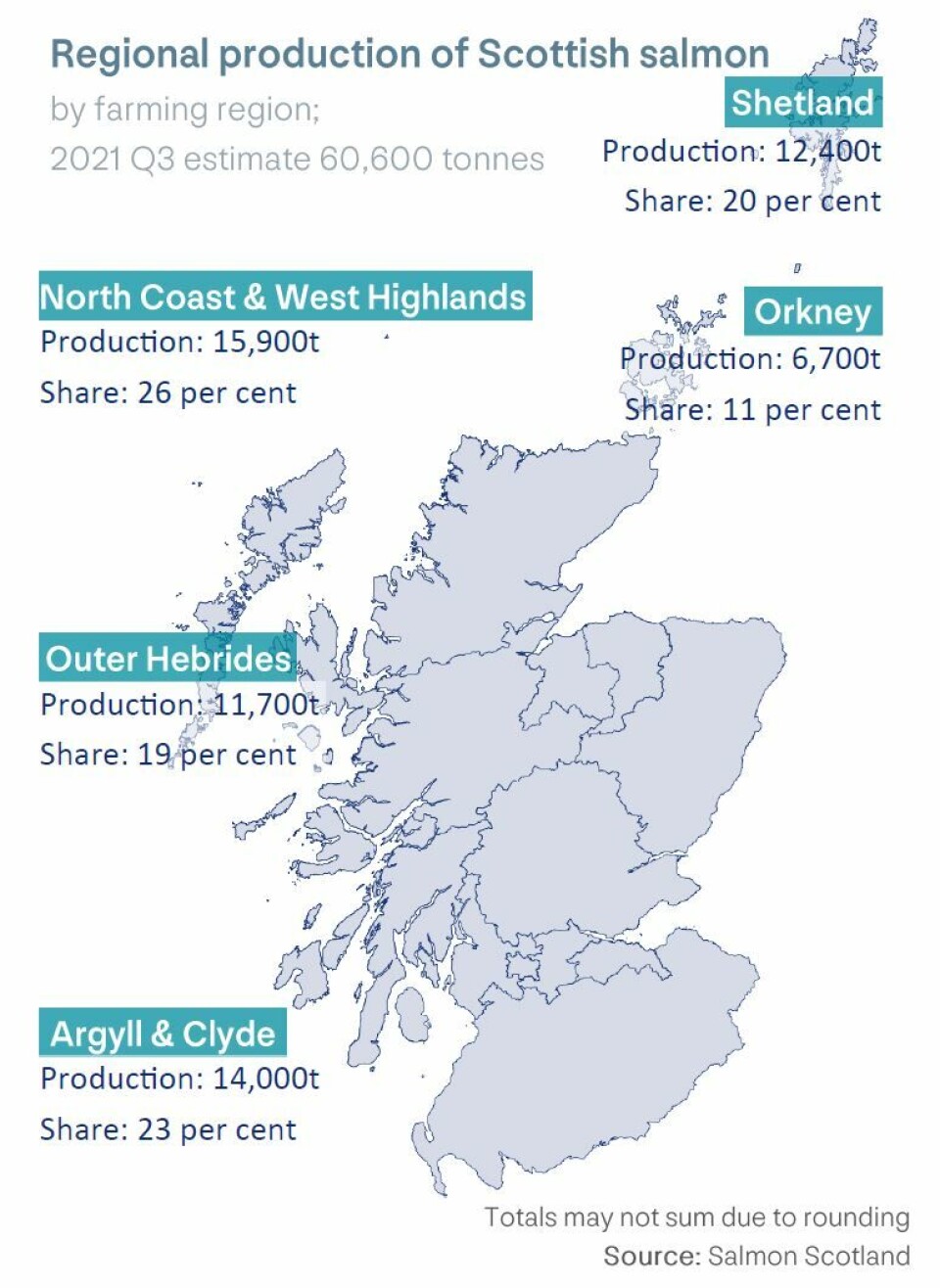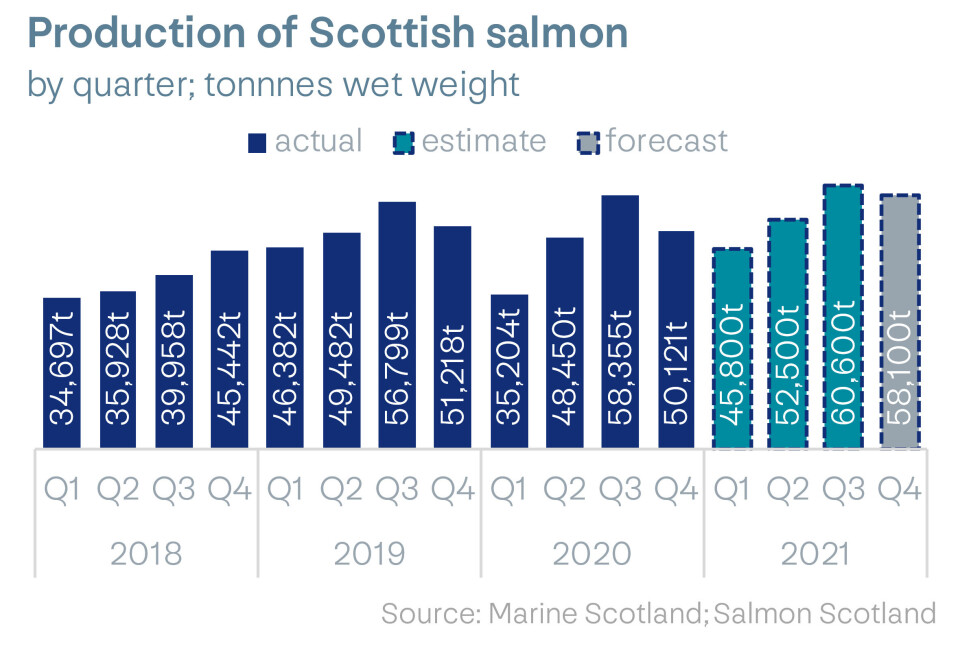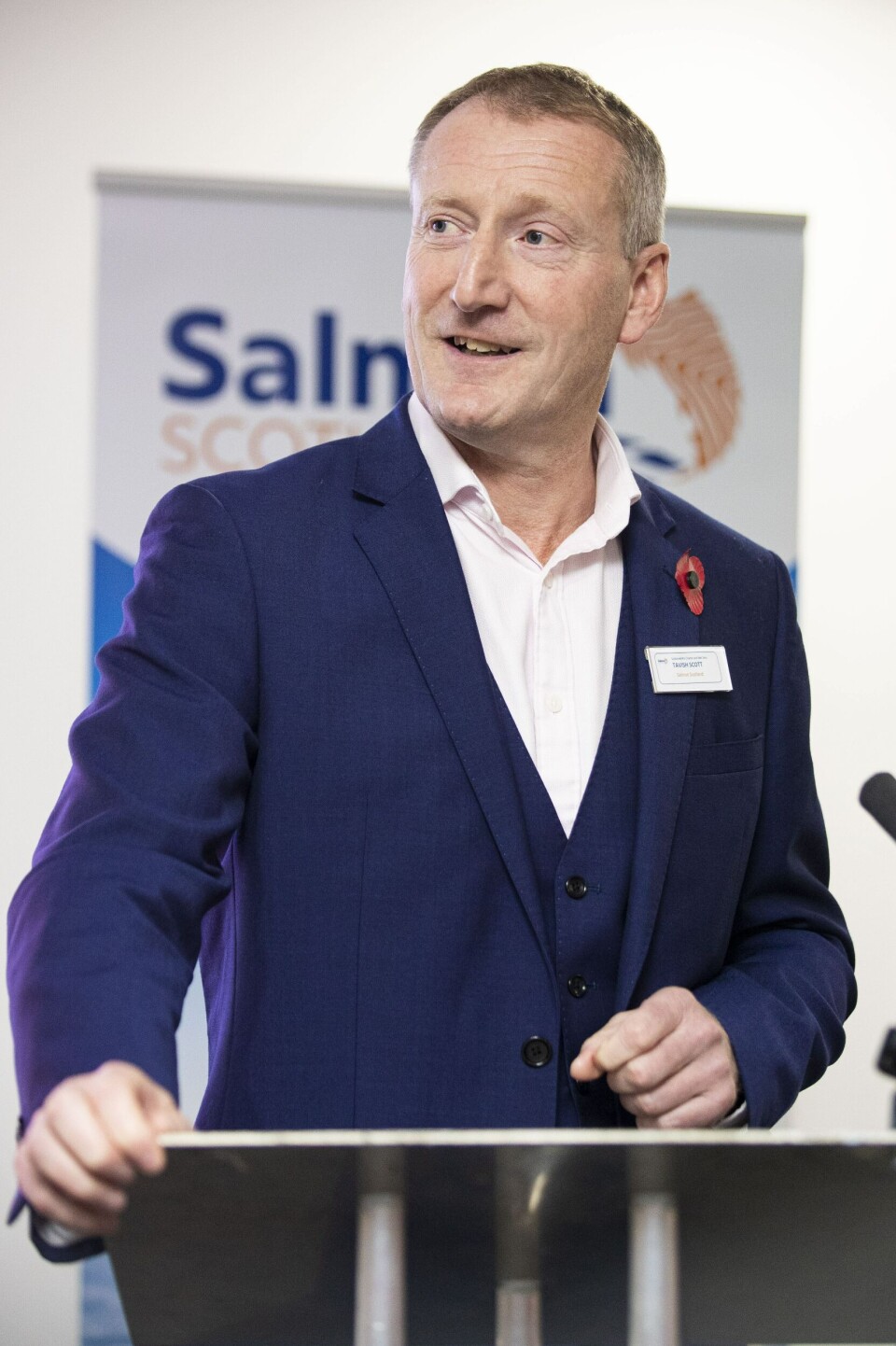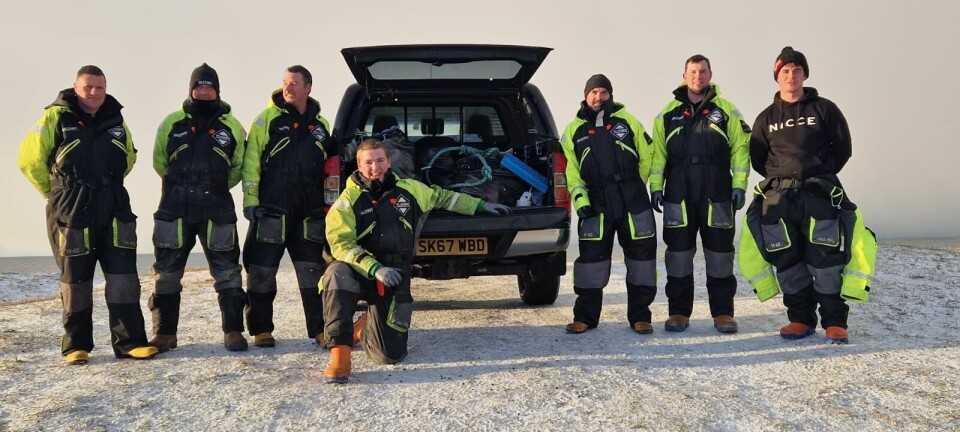
Scottish salmon exports eclipse 2020 in nine months
The amount of Scottish farmed salmon exported in the first nine months of this year has exceeded the volume sent abroad in the whole of 2020.
Almost 80,000 tonnes of Scottish salmon worth more than £485 million was exported in the period, Salmon Scotland (formerly the Scottish Salmon Producers’ Organisation) said in the first edition of a new quarterly economic bulletin.
“Sales of fresh and chilled Atlantic salmon to the EU have now reached record volumes, helping it to maintain its position as the UK’s most valuable food export,” said Salmon Scotland chief executive Tavish Scott.

Regional breakdown
The bulletin includes a breakdown of how much fish was produced in each of five salmon farming areas in the third quarter of this year, based on estimates by Marine Scotland and Salmon Scotland.
The industry harvested 60,600 tonnes (live weight) in Q3 which was distributed like this:
| North Coast and West Highlands | 15,900t (26%) |
| Argyll and Clyde | 14,000t (23%) |
| Shetland | 12,400t (20%) |
| Outer Hebrides | 11,700t (19%) |
| Orkney | 6,700t (11%) |
“Volumes of chilled salmon increased by two per cent in volume and value terms in the year to the end of October,” said Scott. “This meant that we maintained growth experienced in retail during the initial stages of the pandemic as food service outlets were closed.Around £182m-worth of salmon was exported from Scotland in Q3 2021, and both volume and value are up for the 12 months from November 2020.
“We are expecting to produce 217,000 tonnes (live weight) in total this year, which will represent an increase of 9,300 tonnes, or 4.5 per cent, on 2020.”

Restricted market access
Salmon Scotland explains in the bulletin that output during the first three quarters of 2021 has been challenging due to market access still being restricted in many regions, with passenger flight numbers greatly reduced and increased checks, paperwork and time in accessing the European market. Despite this, farmers have overcome these hurdles to reach market demand effectively, concentrating on the UK and Europe.
Farm gate prices (NASDAQ) for Atlantic salmon experienced a seasonal decline during the initial stages of Q3 before rallying at the end of the period. However, they remain some way behind the returns recorded pre-pandemic at the end of 2019.
Despite the challenging market conditions, Scottish wholesale prices at the French RUNGIS market maintained a premium throughout the year over international competitors.

Retail leader
The overall UK retail market for fresh fish is worth £2.3 billion each year. “Natural” fresh fish – a retail industry term for fish identifiable at the fresh fish counter - accounted for just under half of that value at £1.1 billion in the 52 weeks ended October 23. Salmon (from Scotland and elsewhere) is the most valuable fish in that category, accounting for 48% and over half a billion pounds worth of all sales.
The bulletin points out that the farmed salmon sector contributes more than £640 million to the Scottish economy annually through direct, indirect and induced impacts, and provides direct employment for more than 2,500 people.
Scott said he was optimistic about the future of the sector. “As more businesses return to full capacity, the outlook for domestic consumption in the restaurant and hospitality sector should remain positive.
“This is because consumers will take the opportunity to eat out more often while at the same time cooking and enjoying salmon in their own homes.”
Publication of the regional breakdown and detailed estimates by quarter for production and trade figures represents a new development for Salmon Scotland, which Scott said reinforced the sector’s commitment to transparency and openness.




















































